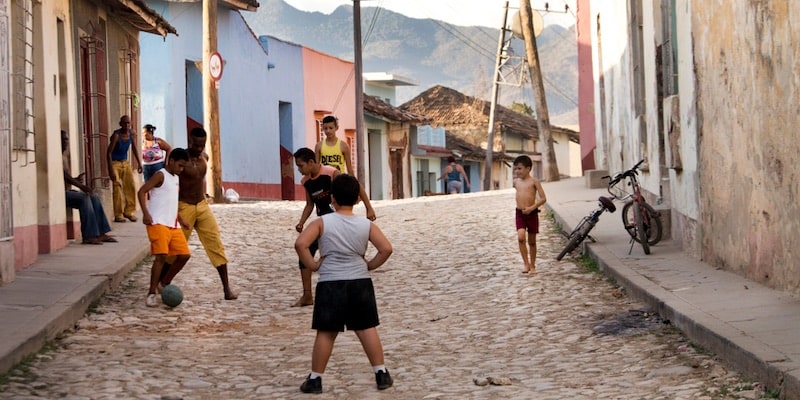We explain what something playful is, examples of playful activities and the uses of the term. Also, what is the playful learning method.

What is something playful?
Something playful It is something belonging to or linked to play and leisure whether it be games of chance, or other forms of entertainment, such as children's games, board games or video games. They are synonyms of playful: recreational, fun, entertaining or playful.
The term “ludic” (and its obsolete, although historically more “correct,” variant “ludicro”) comes from the Latin word luduswhich means on the one hand “game” and “fun”, and on the other “preparatory exercise”. The ancient Romans called ludi (“games”) to their great public theatrical and circus festivals, but also to the exercises that were done to learn to play an instrument or for military training. In fact, with this last meaning it was called ludus to the primary and elementary school that the Romans founded in the 3rd century BC. C., and that provided children with training outside the home and family.
Currently, the adjective “playful” is used in different contexts, always to refer to something linked to play or entertainment. So, for example, The pathological addiction to gambling is known as “gambling addiction” (especially gambling), while when talking about the “recreational use” of a substance (such as illegal drugs) it refers to its recreational and eventual consumption. In addition, “Leisure activities” is a technical way of saying “games”.
It is important, however, Do not confuse what is playful with what refers to Luddism or the ludditesa social movement of the 19th century that was fanatically opposed to technology and industrialization, and whose name comes from the surname of its supposed founder, the British worker Ned Ludd (18th or 19th century).
Examples of recreational activities
Some examples of recreational, that is, playful, activities from everyday life are the following:
- Play group board games, such as monopoly, ludo or cards.
- Play video games on a console, smartphone or computer.
- Go to the cinema to see a movie, or watch a television series at home.
- Read a novel or a book of stories.
- Go see a play, an opera, or an orchestra performance.
- Play sports with friends: play soccer, volleyball, basketball.
- Draw on a blank sheet of paper.
- Make sand castles on the beach.
- Dancing at a party or in a nightclub.
- Go hiking or mountaineering.
- Play poker or blackjack.
Playful learning method
In the field of education, a set of educational strategies whose central point is make learning fun, enjoyable, that involves the student without him being able to realize it. This does not mean replacing the educational event with leisure, but rather building recreational dynamics that reinforce and promote the desired learning, adapted to the topics to be taught, the ages of the students and the available spaces.
These types of methods have been widely effective, especially in the early stages of school development (the so-called “early childhood”, up to age 8). Since they move away from traditionally established educational patterns, they require teachers with training in playful learning and with the material and social possibilities to undertake this type of dynamics safely and successfully.
Playful learning has proven to have the following virtues:
- It is attractive and greatly involves the student as it gives you fun challenges to face.
- It is socially interactive so it encourages dialogue between peers and socialization.
- Invites active participation which breaks with the passive role assigned to the student in traditional education.
- It is diverse and very adaptable since games of all kinds can be proposed, adapted to the needs of the course and the spaces and resources available at the school.
Continue with: Spontaneity
References
- “Lúdico, ca” in the Dictionary of the Language of the Royal Spanish Academy.
- “Etymology of Ludic” in the Online Spanish Etymological Dictionary.
- “Learning through play” at Unicef.
- “Playful method” in Wikipedia.





